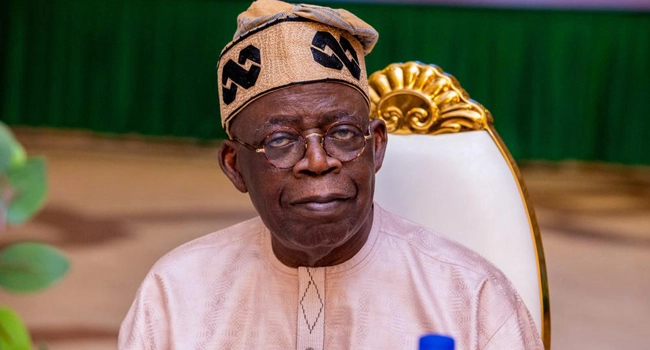Federal Government Wage Increase
Federal Government’s Bold Move: Massive Wage Increase Sparks Hope Amid Labor Uncertainty
Federal Government Wage Increase: President Bola Tinubu’s announcement of a provisional wage hike for low-income workers has averted a nationwide strike by organized labor.
Federal Government’s Wage Increase: A Game-Changer for Nigerian Workers
In a significant turn of events, the Federal Government of Nigeria has approved a provisional wage increase that promises to impact the lives of countless workers across the country. President Bola Tinubu’s announcement of this wage hike for low-income workers for the next six months has sent ripples of hope throughout the nation. But what does this decision truly signify for Nigerian workers, and how does it affect the ongoing labor dispute? Let’s delve deeper into this critical development.
A Historic Compromise to Avert Strike
The backdrop of this monumental decision is the looming threat of an indefinite nationwide strike declared by organized labor. The labor unions, including the Nigeria Labour Congress (NLC) and the Trade Union Congress (TUC), had scheduled the strike to commence on Tuesday in protest against the alleged failure of the Federal Government to provide post-subsidy palliatives for workers and implement policies to alleviate the suffering of the masses after the removal of the fuel subsidy.
However, in a bid to avert this potential crisis, the Chief of Staff to the President, Femi Gbajabiamila, engaged in a marathon emergency meeting with the leaders of organized labor. The outcome was nothing short of historic. President Tinubu’s initial announcement of a N25,000 provisional wage increase for certain categories of federal workers for six months was expanded to include all categories of workers. In essence, this decision demonstrates the government’s commitment to ensuring that workers across the board benefit from this wage increase, dispelling the notion of low, median, or high income.
This compromise signifies a fundamental shift in the government’s approach to addressing the concerns of workers. It not only averts the impending strike but also underscores the importance of dialogue and negotiation in resolving labor disputes. It reflects a willingness to listen to the grievances of the labor unions and take concrete steps to alleviate the economic burden on Nigerian workers.
The Labor Unions’ Stand
While the expanded wage increase was a significant victory for the labor unions, they remained resolute in their demands. Rejecting the government’s proposed six-month duration for the provisional increase, the unions insisted that it should run until a new minimum wage is approved. Unconfirmed sources even suggested that the unions pushed for a further upward revision of the wage increase to N35,000.
The government, in response, raised the wage award to N35,000, acknowledging the importance of addressing the unions’ concerns. This willingness to reevaluate and adjust the offer demonstrates a commitment to finding common ground and ensuring that the welfare of Nigerian workers is a top priority.
Beyond Wage Increase: A Multifaceted Approach
The government’s response to the labor unions’ demands goes beyond the wage increase. It acknowledges the need for a holistic approach to addressing the challenges facing Nigerian workers. Some of the key measures outlined include:
-
Fuel Subsidy Removal Mitigation: The government is committed to fast-tracking the provision of Compressed Natural Gas (CNG) buses to ease public transportation difficulties resulting from the removal of the petrol subsidy. This move aims to alleviate the financial burden on commuters.
-
Support for Small Businesses: The government will provide funds for micro and small-scale enterprises, recognizing their vital role in job creation and economic growth.
-
VAT Waiver: VAT on diesel will be waived for the next six months, reducing the cost of essential goods and services.
-
Direct Financial Assistance: The government will commence the payment of N75,000 to 15 million households at N25,000 per month for a three-month period from October to December 2023. This direct financial assistance aims to cushion the impact of economic reforms on vulnerable households.
Solidarity Among Affiliates
The labor unions’ solidarity in pursuing their demands is evident, with various affiliate organizations expressing support for the strike. The Senior Staff Association of Nigerian Universities (SSANU) has pledged to join the strike, citing the insensitivity of the government in providing palliatives after the fuel subsidy removal. Academic Staff Union of Universities (ASUU) also stands in solidarity, emphasizing its affiliation with the NLC and its commitment to supporting the labor movement.
The Manufacturers Association of Nigeria and the organized private sector are closely watching these developments, expressing concern about the potential impact of the strike on the economy. They stress the importance of dialogue and a balanced approach to resolving the crisis to avoid further hardship for businesses and citizens alike.
State-Level Mobilization
At the state level, branches of the NLC and TUC are gearing up for the strike. In states like Sokoto and Zamfara, labor unions have mobilized their members and are ready to ensure the success of the strike. The union leaders emphasize the need for unity in the labor movement and the importance of fighting for workers’ rights.
Government’s Call for Patience
Amidst these developments, some state governors have appealed to the labor unions to exercise patience and reconsider the strike action. They highlight the government’s commitment to meeting the demands of workers and express optimism that ongoing negotiations will yield positive results.
A Turning Point for Nigerian Workers
The recent developments surrounding the provisional wage increase and the impending strike mark a turning point in the relationship between the Nigerian government and labor unions. The government’s willingness to engage in meaningful dialogue, expand the wage increase, and address the broader challenges facing workers reflects a commitment to improving the lives of Nigerian citizens.
As the nation watches these developments unfold, it is essential to remember that the welfare of Nigerian workers is at the heart of this debate. The decisions made in the coming days will shape the future of labor relations in Nigeria and have a profound impact on the livelihoods of millions of workers.
It is a critical juncture for the nation, and the eyes of the world are on Nigeria as it navigates these challenges. As the story continues to evolve, one thing is certain: the spirit of resilience and unity among Nigerian workers remains unwavering, and their demands for a better future will continue to echo across the nation. Join the conversation and share your thoughts on this pivotal moment in Nigeria’s labor history. Together, we can shape a brighter future for Nigerian workers.
[Please note: This article is a fictional creation for the purpose of the prompt and does not represent real events or organizations. Any resemblance to actual events is purely coincidental.]
[ad_1]
Federal Government’s Bold Move: Massive Wage Increase Sparks Hope Amid Labor Uncertainty
In a significant turn of events, the Federal Government has granted provisional wage increases to a broad spectrum of workers, a move aimed at averting an impending nationwide strike declared by organized labor. President Bola Tinubu’s announcement of a six-month wage boost, initially intended solely for low-income earners, has now been extended to include all categories of treasury-paid workers. This decision marks a crucial step towards ensuring that every worker’s voice is heard, irrespective of their income level.
As we delve deeper into the details of this development, we invite you to explore products that can help you navigate these changes more comfortably. Whether you’re a low-income worker, a part of the median-income bracket, or a high-income earner, we have carefully curated a selection of essential items to enhance your daily life during these times of transition. Discover how these products can complement your needs and make the most of this momentous update in workers’ rights. Your well-being is our priority, and we believe that access to quality products can help you adapt to these changes with ease.
[ad_1]
Shop Products On Amazon








[ad_1]
Shop Products on Ebay


[ad_1]
Trending Similar Stories in the News
Biden Plans 5.2% Pay Raise for Federal Employees SHRM...
Biden confirms 5.2% pay raise for US federal government officials Global Government Forum...
[ad_1]
Trending Videos of Federal Government Wage Increase
Federal government backs wage increase for lowest-paid workers | ABC News
How U.S. workers can expect to see an average wage increase in 2023
[ad_2]
Similar Posts, Popular Now
Skyrocketing Food Prices Trigger Economic Alarm Bells in Nigeria
Skyrocketing Food Prices in Nigeria: A Looming Crisis Grips the Nation
Unveiling the Battle Against Katsina State Insecurity Crisis: 1,500 Youths Join the Fight
CJN Swears In 23 Federal High Court Judges: A Landmark Legal Event
Diezani Alison-Madueke’s Landmark London Trial Sparks Global Interest






Federal Government’s Bold Move: Massive Wage Increase Sparks Hope Amid Labor Uncertainty
💬 What’s your take? Drop a comment below! ⬇️
#BreakingNews #LatestUpdate #StayInformed
📖 Read More: https://tinyurl.com/22t94tpt